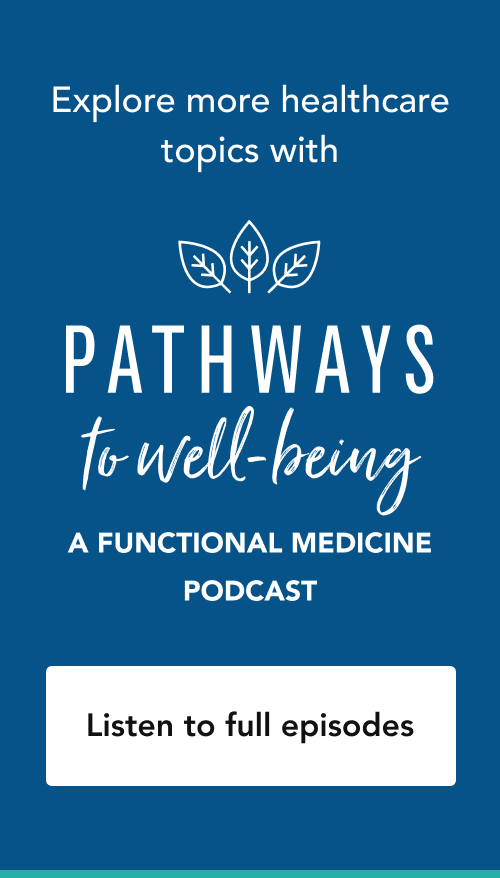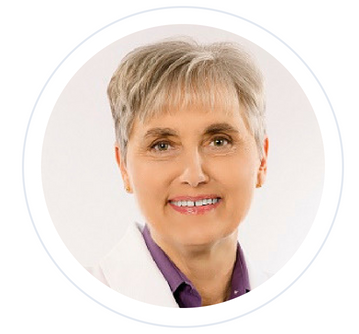podcasts
Addiction Treatment, Personal to Professional: Stephen Loyd, MD
While in residency, Stephen Loyd, MD, FACP, struggled with anxiety and problem drinking. An experiment with hydrocodone led to several years of opiate addiction, culminating in an intervention by a family member. In the interview below, Dr. Loyd shares his personal story and connects his successful recovery to the social determinants of health. The experience galvanized him to move into addiction treatment and policy work. Dr. Loyd is now both the medical director of a large addiction treatment facility in Nashville and works at an inner-city rehabilitation facility serving indigent women.
My own personal journey started with my own addiction.
Since his recovery, Dr. Loyd has dedicated his energy toward not only addiction treatment, but also influencing public health policies. In this interview, IFM’s director of Medical Education speaks with Dr. Loyd about his personal and professional journey. Together, they discuss the social determinants that predispose individuals to addiction.
Dr. Loyd is a nationally renowned speaker on prescribing controlled substances and an expert in public health policy around addiction and addiction treatment. He is the former medical director and assistant commissioner for Substance Abuse Services with the Tennessee Department of Mental Health and Substance Abuse Services.
Adverse childhood experiences (ACEs) are one of the areas Dr. Loyd would like addiction treatment to focus on more directly. Studies have clearly connected early-life trauma to later drug and alcohol abuse.1 Additionally, child abuse followed by later-life exposure to trauma may increase the risk of drug and alcohol addiction.1 Childhood maltreatment alters the brain and its volume, and may increase the likelihood of relapse.2
As Dr. Loyd emphasizes in the interview, both based on the research and his own experience, treatment of co-occurring mental and substance disorders is vital to successful treatment. For instance, one review concluded that adolescents with PTSD related to child abuse would benefit from integrated treatment of PTSD and the substance-use disorder.3 In adult veterans, treatment addressing both conditions resulted in improvements in both conditions as well as reduced secondary depression.4 Clinicians report that this approach is rare due to the specialized knowledge needed to successfully integrate treatment for both conditions, at least with adolescents.5 Yet PTSD co-occurs with substance use disorders in an estimated 40% of civilians and veterans.6 This state of affairs may help to explain why opioid misuse and overdose have become so prevalent.
Overdose is now the number one killer for Americans under 50 years old.
To combat this public health crisis, researchers are looking into how these integrated treatments affect the brain. Integrated approaches to addiction treatment may accelerate beneficial changes in the brain by supporting multiple healthy pathways. The neurobiology of addiction is an area of intense and growing interest. In addition to understanding the brain activity of current addicts, work is ongoing to assess the functional changes that suggest long-term likelihood of relapse.7 Interventions that target restoration of hedonic regulation, including mindfulness-based therapies, are particularly important.8
Given the complexity of addictive disorders, the need for an integrated approach has become increasingly visible. Treatment needs to address lifestyle behaviors, emotional and social support, nutrition, and more. Integrative and Functional Medicine offer many potential avenues for primary care clinicians to support patients with stress, pain, and addiction.
References
- Mandavia A, Robinson GG, Bradley B, Ressler KJ, Powers A. Exposure to childhood abuse and later substance use: indirect effects of emotion dysregulation and exposure to trauma. J Trauma Stress. 2016;29(5):422-429. doi:10.1002/jts.22131.
- Van Dam NT, Rando K, Potenza MN, Tuit K, Sinha R. Childhood maltreatment, altered limbic neurobiology, and substance use relapse severity via trauma-specific reductions in limbic gray matter volume. JAMA Psychiatry. 2014;71(8):917-925. doi:10.1001/jamapsychiatry.2014.680.
- Cohen JA, Mannarino AP, Zhitova AC, Capone ME. Treating child abuse-related posttraumatic stress and comorbid substance abuse in adolescents. Child Abuse Negl. 2003;27(12):1345-1365.
- Korte KJ, Bountress KE, Tomko RL, Killeen T, Moran-Santa Maria M, Back SE. Integrated treatment of PTSD and substance use disorders: the mediating role of PTSD improvement in the reduction of depression. J Clin Med. 2017;6(1):E9. doi:10.3390/jcm6010009.
- Adams ZW, McCauley JL, Back SE, et al. Clinician perspectives on treating adolescents with co-occurring post-traumatic stress disorder, substance use, and other problems. J Child Adolesc Subst Abuse. 2016;25(6):575-583. doi:10.1080/1067828X.2016.1153555.
- Flanagan JC, Korte KJ, Killeen TK, Back SE. Concurrent treatment of substance use and PTSD. Curr Psychiatry Rep. 2016;18(8):70. doi:10.1007/s11920-016-0709-y.
- Koob GF, Simon EJ. The neurobiology of addiction: where we have been and where we are going. J Drug Issues. 2009;39(1):115-132. [PMC2901107].
- Garland EL, Howard MO. Mindfulness-based treatment of addiction: current state of the field and envisioning the next wave of research. Addict Sci Clin Pract. 2018;13(1):14. doi:10.1186/s13722-018-0115-3.



